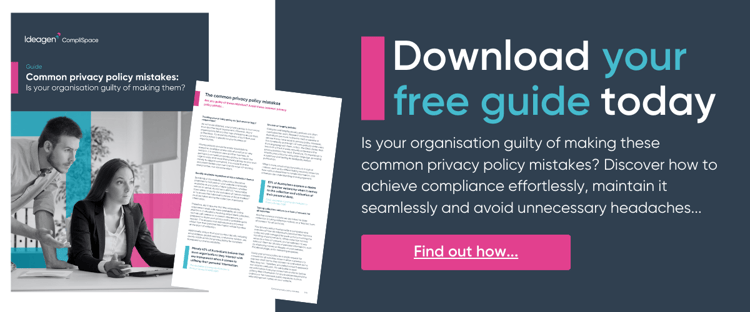This article revisits the laws in Australia on the use of listening devices and their recordings.
A recent article has outlined a mother’s complaint against her daughter’s school in Queensland, following a secret recording that the mother had made of conversations between her daughter and a teacher.
The mother was reportedly concerned that her five-year-old daughter was the target of schoolyard bullying when she became emotionally withdrawn, distressed, and refused to go to school. The mother contacted the school to request a meeting but felt that the school was not listening to her concerns.
The mother decided to take matters into her own hands by placing a listening device into her daughter’s scrunchie to record her classes in the hope of determining the cause of her distress. Using the recordings, the mother accused her daughter’s teacher of verbally abusing her daughter, and the school of breaching their duty of care to her daughter.
Police were made aware of the recording, however, they stated that no criminal offences had been committed and that they were no longer investigating the incident.
The article provides an opportunity to survey the laws on recording conversations without someone’s consent, which vary across Australia and constitute an offence in most states and territories.
General Laws Regarding Listening Devices and the Use of Recordings Made
A “listening device” means any instrument, apparatus, equipment or device capable of being used to listen to or to record a conversation but does not include a hearing aid.
Federal laws on listening devices under the Surveillance Devices Act 2004 (Cth) govern the use of listening devices by federal law enforcement officers, however, they do not apply to the use of listening devices by individuals.
State and territory Acts which cover the use of listening devices include:
- Listening Devices Act 1992 (ACT)
- Surveillance Devices Act 2007 (NSW)
- Surveillance Devices Act 2007 (NT)
- Invasion of Privacy Act 1971 (Qld)
- Surveillance Devices Act 2016 (SA)
- Listening Devices Act 1991 (Tas)
- Surveillance Devices Act 1999 (Vic), and
- Surveillance Devices Act 1998 (WA).
Recordings of all kinds are becoming more commonplace among the average Australian, so it is important to note that the laws that apply to these kinds of activities vary between the states and territories.
The general legislative intent of these Acts is the protection of unjustified interference with a person’s privacy. Therefore, there are limited circumstances where the use of listening devices or their recordings are legal.
Generally, in Queensland, Victoria and the Northern Territory, if you are involved in a face-to-face conversation, you can secretly record it. You can face fines or imprisonment if you record a conversation that you are not involved in.
The laws in New South Wales, Tasmania, Western Australia, South Australia and the Australian Capital Territory are more restrictive, requiring consent from everyone involved in the conversation to make recording it legal. There are some exceptions in these jurisdictions, for example:
- the recording is necessary for the protection of that party's lawful interests (ACT, WA, Tas, SA and NSW)
- the recording is in the public interest (SA)
- the recording of the conversation is not made for the purpose of communicating or publishing the conversation, or a report of the conversation, to persons who are not parties to the conversation (ACT and NSW).
Commonly, a listening device can be used where the conversation is not private. Definitions vary by state and territory, however, private conversations generally include those where the circumstances indicate that any of the parties involved wanted the conversation to be confined to the other parties to the conversation. It does not include conversations where those involved should have reasonably expected that the conversation may be overheard, recorded, monitored or listened to by some other person. Whether or not a conversation in a classroom is considered a private conversation will depend on the individual circumstances at the time of a recording.
However, just because it may be legal in some states and territories to hit record secretly, this does not mean that the resulting audio recording can be used at will. Unless otherwise authorised, it is an offence in all jurisdictions to publish or share a secret recording with anyone.
Privacy Requirements
The Privacy Act 1988 (Act) requires schools to protect personal information that is held, or collected for inclusion, in a “record” (which includes electronic devices such as mobile phones), where an individual’s identity can reasonably be ascertained. Importantly, schools must not only consider if the recording itself can directly identify the individual, but also whether the recording could be used with other information to ‘figure out’ who the individual is. The Australia Privacy Principles (APPs) in the Act set out how schools must handle the personal information they collect and use about individuals. If a school holds an audio recording in which an individual is reasonably identifiable, then the APPs will apply to the collection, use and disclosure of that recording.
For example, under the APPs the school must:
- take reasonable steps to notify an individual about, or ensure an individual is aware of, certain matters concerning the purpose and circumstances of the collection of their personal information (Principle 5)
- only use such an audio file containing personal information for the primary purpose for which it was collected (Principle 6)
- take active measures to protect personal information from misuse, interference, loss, unauthorised access, modification or disclosure (Principle 11).
Surveillance
Schools can legitimately install surveillance cameras in and around school premises as part of their security systems and safety procedures to ensure that they provide a safe environment for students, staff and visitors. Under most circumstances this would constitute reasonable measures to address the risk of intruders, vandalism, and unauthorised student exits. These are all valid reasons under workplace health and safety legislation and student duty of care obligations. Each state and territory have requirements regarding the use of such systems, for example, having a clearly displayed sign telling people the devices are there. However, recording and storing audio files of conversations must also comply with listening devices laws in each individual state and territory.
What Should Schools Do in the Case of Listening Devices?
As a matter of risk-management, a school should not collect personal information, such as audio recordings, unless the collection and use of the information can be justified as reasonably necessary for, or directly related to, one or more of its core functions, activities, and obligations, and the school’s privacy requirements are adhered to.
In the case of audio files collected by parents through unauthorised secret recordings, the school should consider legal advice.
Authors
Sean Higgins
Sean is a Legal Content Consultant at Ideagen. Sean was involved in private practice as a Solicitor in both Queensland and New South Wales before joining Ideagen in 2023. He holds a Bachelor of Laws (Hons) from Queensland University of Technology.
Karen Zeev
Karen is a Content Services Team Leader at Ideagen. Karen has worked at the NSW Ombudsman and the Office of the Children’s Guardian as a Senior Investigator in the Reportable Conduct Directorate, and at the Royal Commission into Institutional Responses to Child Sexual Abuse as a Senior Legal and Policy Officer where she was a key contributor to the “Redress and Civil Litigation” and “Criminal Justice” reports. Karen has a background as a commercial litigation lawyer and holds a bachelor’s degree in Arts/Law (Hons).




